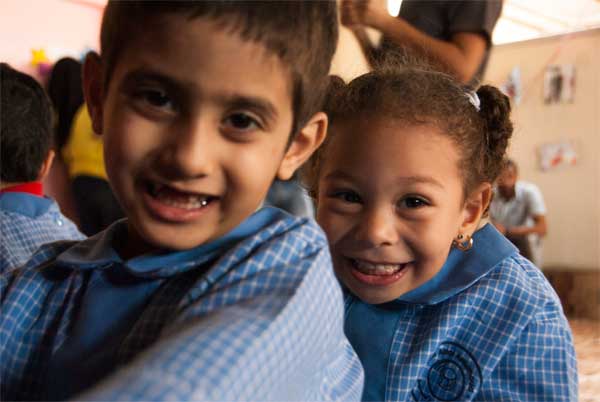Comparing the effects of war to cancer, the Rev. Jack Amick describes UMCOR’s ongoing efforts to aid Syrian refugees.
LINDA UNGER
General Bd of Global Ministries
“We have been able to alleviate the suffering for a fraction of those affected,” said the Rev. Jack Amick, who leads UMCOR’s International Disaster Response unit, his comment an acknowledgment of the catastrophic impact five full years of war has had on Syria, and its neighbors.
In that time, more than a quarter million people have been killed, 4.5 million have fled the country, and 7.6 million have been displaced within Syria. Of the latter, many are trapped in areas of the country that, because of the fighting, are hard to reach with humanitarian aid.
UMCOR has provided more than $3.5 million in emergency assistance to confront the crises in Syria and Iraq since 2011. It has provided emergency food supplies, health care, shelter, psychosocial support, education support, and even mine removal. The aid includes nearly $900,000 in relief-supply kits, including hygiene, school, layette, and birthing kits.
Each year that the fighting has continued UMCOR has increased the number of grants it has made to its partners in the field, from a single grant in 2011 for emergency relief supplies for Syrian refugees at border camps in Turkey, to a total of 22 grants in 2015—almost two a month.
Throughout the years, UMCOR has worked with a dozen partner organizations, both faith-based and secular, to provide assistance in the most effective way. Those partnerships have been underwritten by the extravagant generosity of United Methodists.
A sixth year of war begins
This month signals the start to yet another year of war in Syria.
“This war creeps on like a stage-four cancer, killing society and the ways, means, and space in which Syrians make friendships, marriages, business partnerships, community, and nation,” said Amick.
A tentative temporary cessation of hostilities began on February 27, 2016, but the peace process the United Nations hoped ultimately would emanate from it seemed far away as bombings continued, albeit less frequently in the first days.
“The cities now are little more than names,” Amick commented. “The nation is a shell. This war has sent millions of people running for the crowded safety of slums and settlements of other countries.”
According to the U.N. Refugee Agency, while the vast majority of Syrian refugees are have sought safety in nearby nations—Turkey, Iraq, Lebanon, Jordan, and Egypt—others have fanned out to 120 more countries around the globe in Africa, North and South America, Asia and the Pacific, and Europe.
In just the first two months of 2016, more than 120,000 refugees and migrants already had crossed the Mediterranean Sea from Turkey to Greece—a popular escape route for Syrians—according to the International Organization for Migration. Of them, 321 died in the crossing, including 77 children.
Grace and hope
“Since 2010, UMCOR has been working quietly in response to the Syrian conflict, knowing that we can’t cure this cancer, and also knowing, just as Jesus said about the poor, that conflict will always be with us,” Amick said. But, he was quick to add, the situation is not hopeless.
“There may always be conflict and war in the world, but, there also is grace and hope. For 75 years, UMCOR has been proud to be a face of hope, to carry that light that shines even in the deepest darkness.”
Your gift to UMCOR Advance Special #3022144/Global Refugees/Migration brings light to those who have been uprooted and forced to flee their homelands because of war and violence.
Last Updated on March 15, 2016

